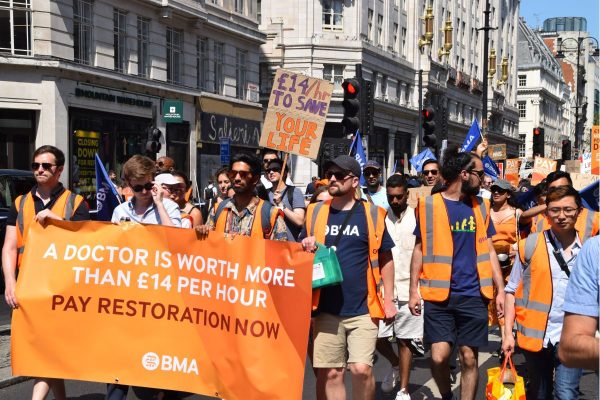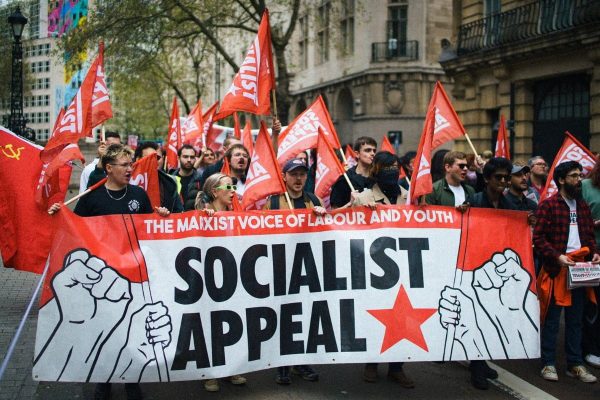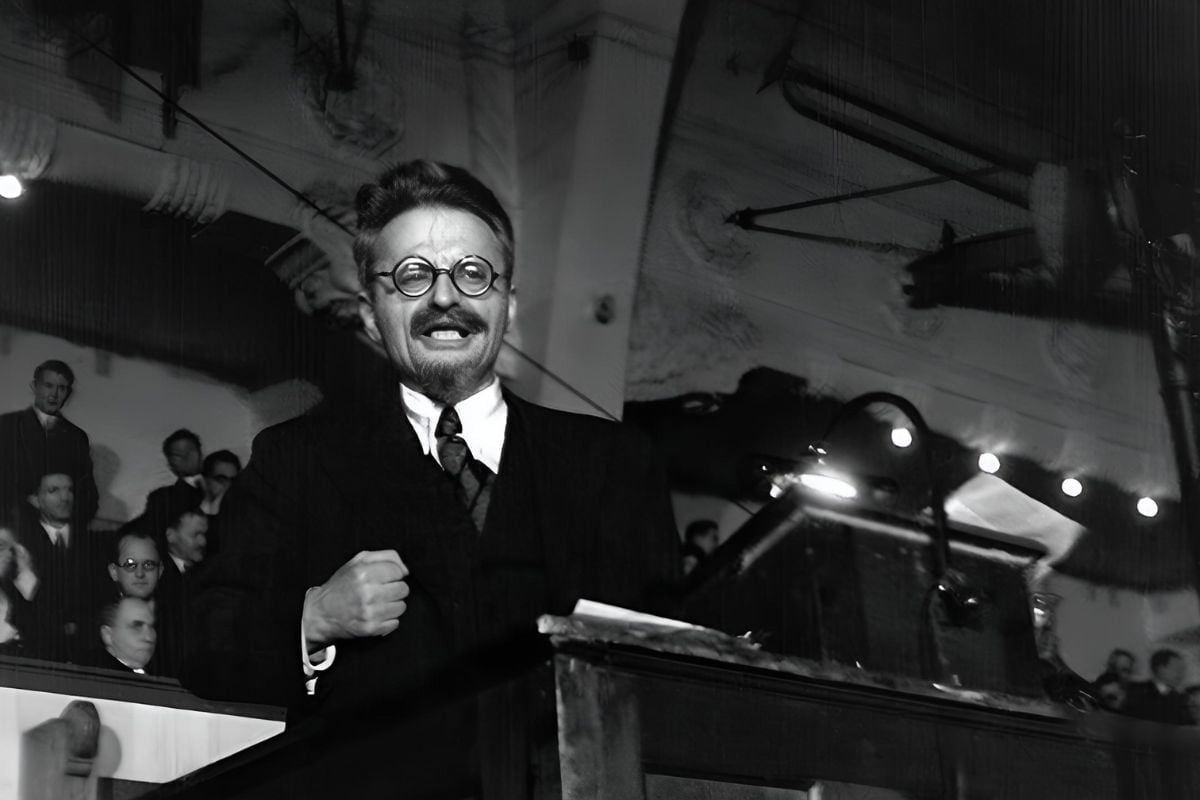The task of communists can be straightforwardly put: to raise the consciousness of the working class; to link the day-to-day battles to the need to transform society along revolutionary lines.
This cannot be done by shouting from the sidelines, nor from the comfort of an armchair. We must meet workers and young people where they are at, and actively participate in their struggles, all whilst highlighting our revolutionary perspective and programme.
Weaving the threads
Communists understand the need for revolution: to smash the capitalist system and put the working class in power. But clearly not everyone is aware of the need for this yet – otherwise there’d be no need for communists!

At the same time, there’s no shortage of discontent towards the status quo in society. Whether it’s attacks on wages and conditions, crumbling public services, police abuse and corruption, or the dire state of student accommodation – there are many things that ordinary people are angry about.
The job of a communist is to explain how all of these issues are linked to the broader system we live under; to weave these threads together into the need for a general, all-out struggle against capitalism.
That means first of all keeping our fingers on the pulse about all the injustices that are taking place in our universities, colleges, workplaces, and neighbourhoods; exposing them; and explaining how best to fight them.
As Lenin put it, a communist must aim to be “the tribune of the people”:
“…who is able to react to every manifestation of tyranny and oppression, no matter where it appears, no matter what stratum or class of the people it affects; who is able to generalise all these manifestations and produce a single picture of police violence and capitalist exploitation; who is able to take advantage of every event, however small, in order to set forth before all his socialist convictions and his democratic demands, in order to clarify for all and everyone the world-historic significance of the struggle for the emancipation of the proletariat.”
Transitional demands
Communists must go beyond piecemeal, reformist demands that aim to patch up the capitalist system. On the other hand, our slogans cannot simply assert the need for revolution, which might seem abstract and pie-in-the-sky to a lot of workers (for now!).
Instead, we must put forward demands that link everyday struggles – over things like wages and conditions – to the need for revolution and communism. This is the role of what we call ‘transitional demands’, which aim to raise the consciousness of workers and youth.
Consider the ongoing UCU dispute in higher education. University bosses claim that they ‘can’t afford’ to meet the demands of lecturers. And yet the fat-cats at the top seem to find plenty of money to pay themselves six-figure salaries, and to hand out lucrative contracts to private companies.
We therefore demand that the bosses open up their books, to be scrutinised by the labour movement. We say: “Show us where you spend the money! Don’t say you can’t pay up…admit that you won’t!”
It’s no secret that the bosses are running universities into the ground, whilst they line their own pockets. So we demand the reversal of marketisation and the kicking out of the profiteers, and that universities are put in the hands of staff and students themselves.
To fund free and high-quality education, we must take the wealth from the capitalists, who are sitting on piles of idle cash that should be put to good use.
Through the very experience of fighting for demands such as these, workers and students will be able to feel the power that they have, and the limits of what can be achieved under capitalism.
Every issue of Socialist Appeal contains a programme of such demands, covering everything from housing to unemployment. Comrades should use this for inspiration.
Get active!
With that in mind, communist branches and cells should keep their eyes out for strikes and protests taking place in their local areas, and make plans to intervene.
Before turning up, we should discuss the dispute and the wider political situation, using the material and analysis in Socialist Appeal as a guide.

When we arrive at a picket line, we should introduce ourselves as communists from the local branch of the IMT, and ask “what solidarity can we provide?” We could distribute leaflets, provide food and hot drinks, and help collect money for the union’s fighting fund.
We should listen to the strikers, and learn about their dispute and the issues they face. We could even offer to interview them, so that we can report on their struggle.
In Lancaster, our branch recently produced a leaflet to encourage students to join the fight against marketisation, with the slogan ‘Kick capitalism out of higher education!’. This went down really well amongst the staff.
Through our consistent support for the strike, we have built up a rapport with the strikers. We have even been invited to speak at picket rallies, and to lead ‘teach outs’ on revolutionary history.
If we are able to do so, we could also organise a public meeting to build support and solidarity. If this gets a good response, this could be the launchpad for a wider campaign.
In Leeds, for example, comrades were able to organise a demonstration of thousands of students and workers from different trade unions. This ended with a rally where our comrades spoke alongside other labour movement activists, putting forward bold demands around higher education.
In all of our interventions, our aim is to link the issues at hand with other struggles going on around the world, and with the overall need to overthrow capitalism.
Above all, our aim is to find those who agree with what we have to say; who identify as communists; and who want to get organised and join us in the fight for revolution.
In the final part of this series, ‘Organise!’, we will discuss how we turn Marxist ideas into a material force, by building a revolutionary organisation of committed communists. Stay tuned!






